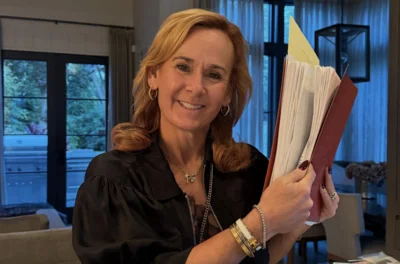Ballot Box | Piqsels
Ballot Box | Piqsels
If Illinois voters enact the graduated income tax in November, it will be much easier for the legislature in the future to increase tax rates, which could be detrimental to small businesses, according to the National Federation of Independent Business (NFIB).
Voters are slated to decide by referendum whether the state should adopt a graduated income tax, also known as Joint Resolution Constitutional Amendment No. 1, now that both chambers of the Illinois legislature have passed it.
“If voters accept it, the legislature won’t need the supermajority to increase taxes,” said Mark Grant, NFIB Illinois State Director. “They’ll just need a civil majority and with that, we can expect to see tax increases coming our way pretty frequently. It will end up being tax increases that will never be stopped.”
The graduated income tax, also known as the progressive tax, will replace the state’s current flat income tax if it passes muster with voters in November.
“When you start taxing businesses and properties at higher values and higher rates, that's money coming out of the actual economy and going into the government, and in the case of businesses, it leaves less money for business owners to hire more workers or pay workers higher salaries and benefits,” Grant told the DuPage Policy Journal. “That’s where we see the graduated income tax being harmful to workers.”
According to the U.S. Bureau of Labor Statistics, Illinois was among the top ten states with the highest unemployment at 16.4 percent, compared to 28.2 percent for Nevada, the highest, and 7.9 percent for Connecticut, the lowest.
“We're convinced that it's going to be bad for the state of Illinois, bad for business and bad for workers so we're going to be working hard up until November to convince taxpayers and voters that this is a bad idea and that, in fact, it will be costly to them and costly to the state," said Grant in an interview.
Illinois Gov. J.B. Pritzker introduced the graduated tax rate as a means to ease the burden on middle-class families because it would earn the state $3.4 billion in added revenue, as previously reported.
But opponents say it does nothing to stop rising pension gaps, health coverage prices or taxation on properties. The progressive income tax is expected to bring in $1.1 billion, according to Illinois Policy Institute.
The NFIB is among the organizations that signed off on a letter sent to the legislature on May 19, 2020, requesting repeal of Senate Joint Resolution Constitutional Amendment 1.
“The letter had to do with stopping the constitutional amendment going forward while our legislative session was still going on more than a week ago,” Grant said. “They could have voted to stop it but they didn’t so it's moving forward and it'll be on our ballot in November.”
The letter specifically states, “the introductory rates associated with the amendment would hike taxes on an estimated 100,000 pass-through businesses in Illinois. Small businesses are the economic engine of the state – responsible for roughly 60% of new job creation. Now is the wrong time to raise taxes on job creators and businesses and inject additional uncertainty into the state economy.”






 Alerts Sign-up
Alerts Sign-up